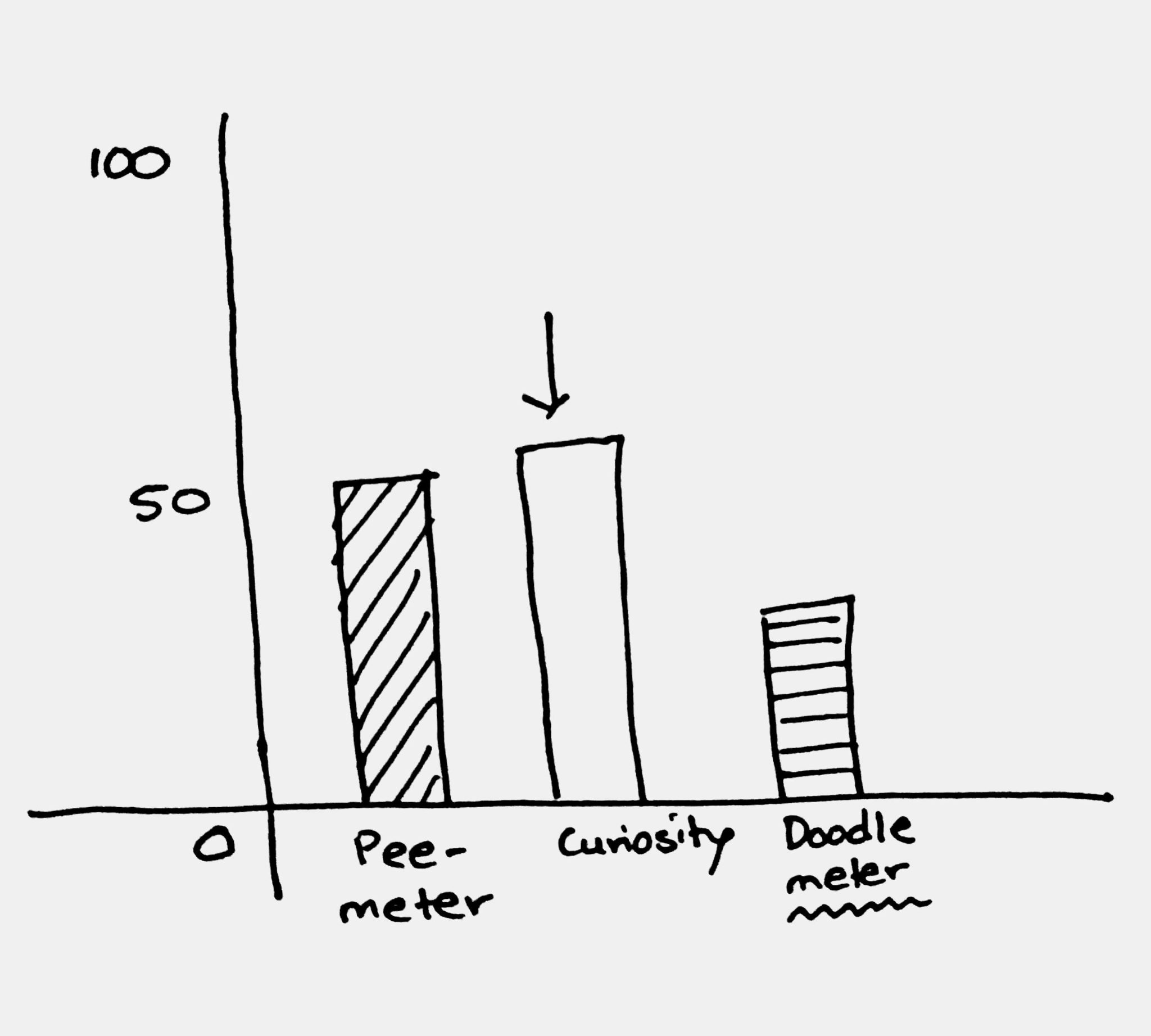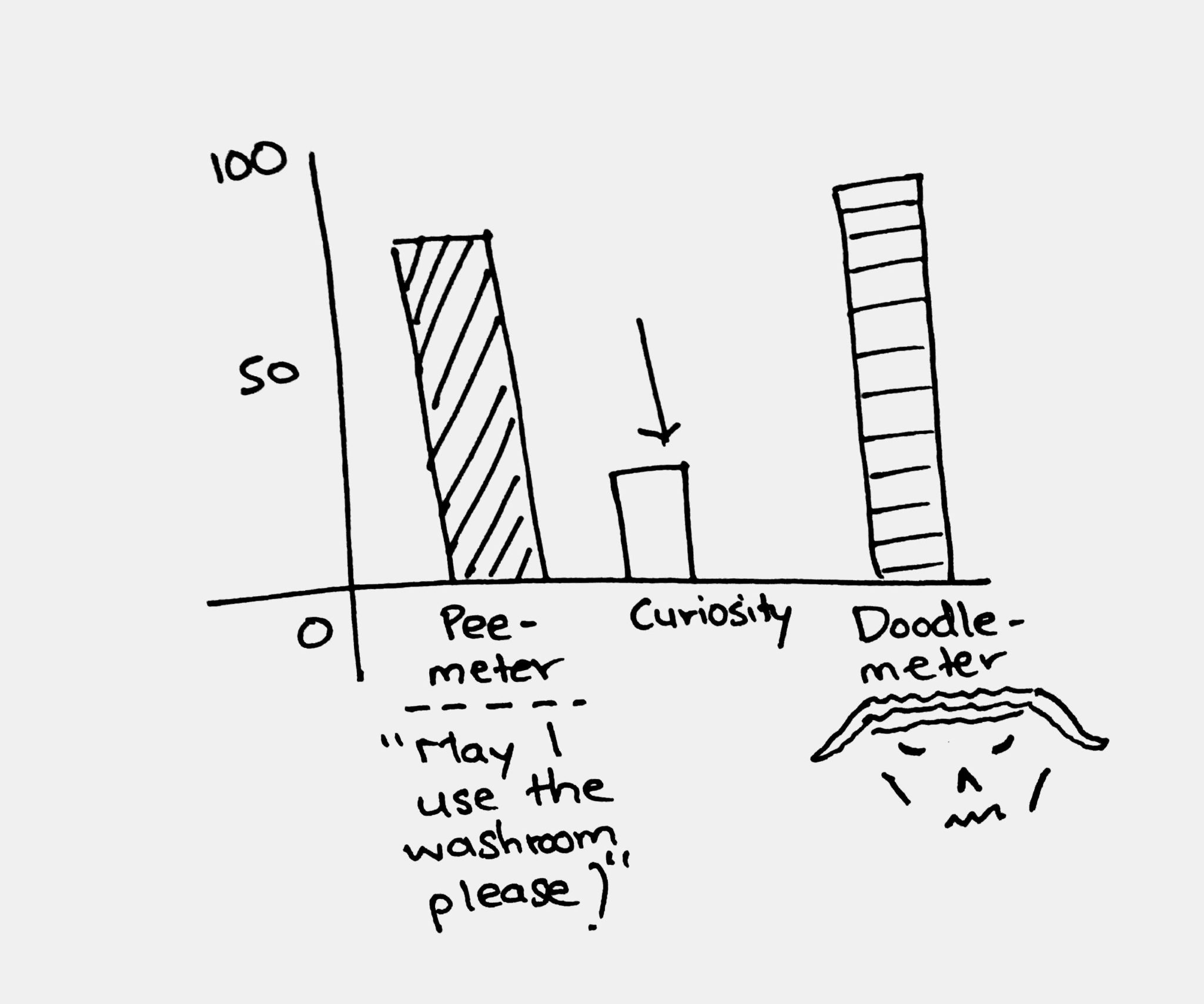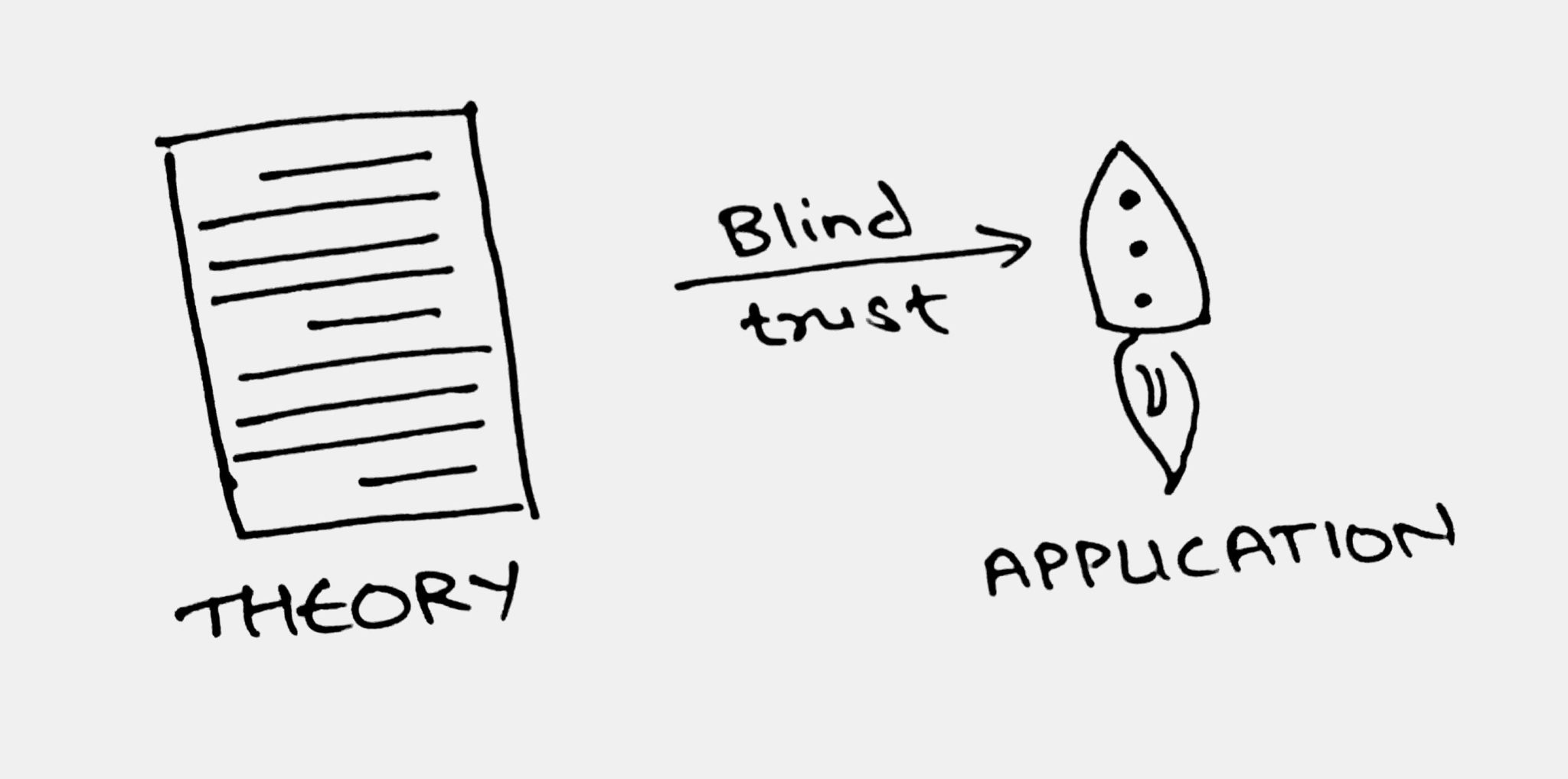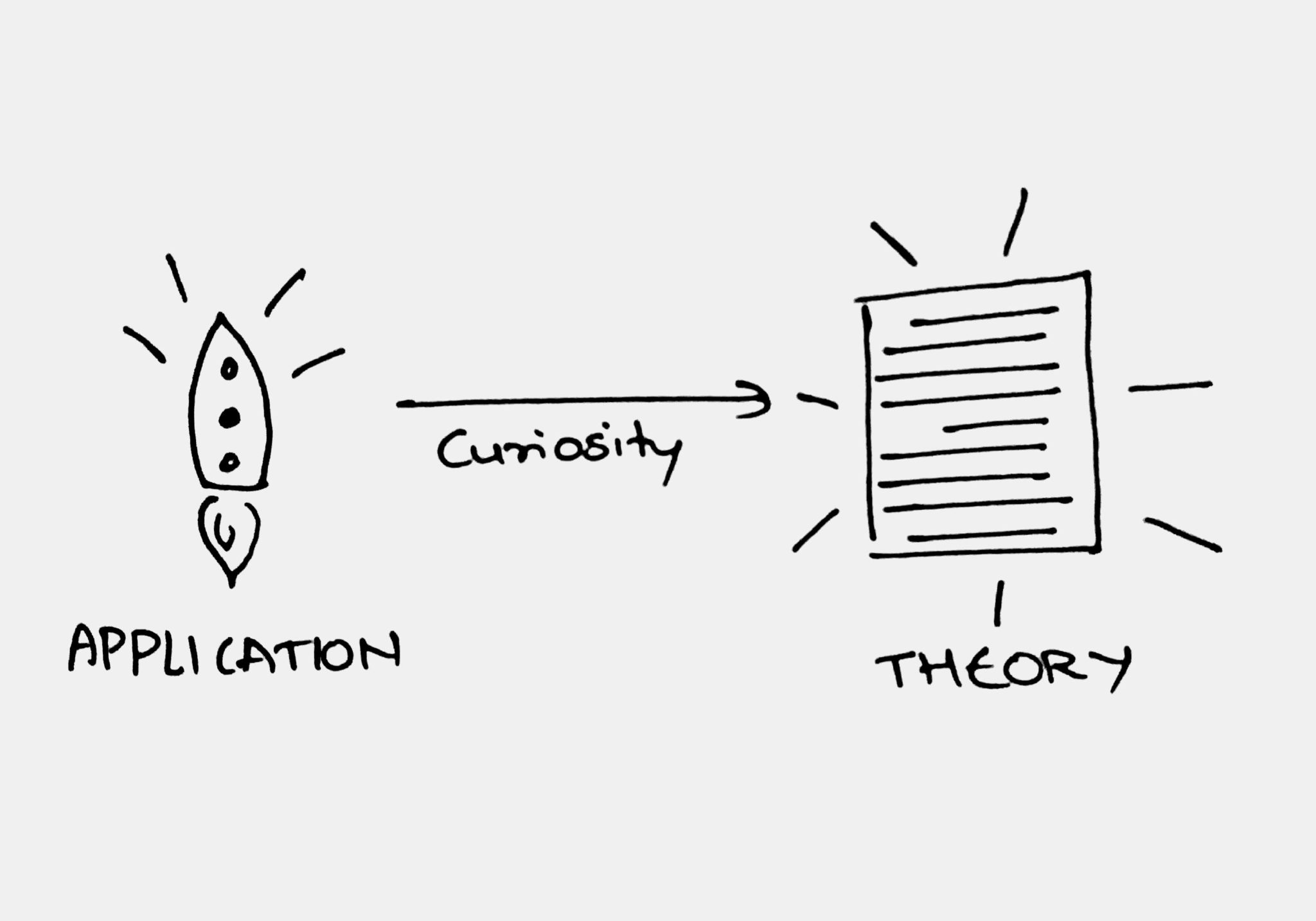If any real magician decides to tell you the theory behind their trick, they’d be out of business before you could say ‘Magic’. The theories and inner workings of a magic trick are a fun thing to know, but the common man wants to be bamboozled; pulled in by the mystery of the trick; the utterly impossible nature of what he is about to see next.
Let me take you away from the exciting world of magic for a bit and put you into a typical Indian classroom. There’s a wooden desk and there’s you, waiting for the teacher.

Are you with me? Great.
Yes, I know. The sketch is amazing. I topped art class in school.
Anyway, this is your curiosity level:

The teacher walks in, book, duster, and chalk in hand.
‘Today, we’re going to discuss graph traversal algorithms. Take out your notebooks,’ she says.
This is your curiosity level now:

You’re already dozing off. The next few minutes will be full of note-taking, and assimilation of almost incoherent words that will escape your mind the moment you walk out of the classroom.
This is what happens when the magician reveals what they have in their box before they present the trick. I call it the “Spoon” method of teaching because you’re spoonfed everything.

In the practical session later that day, when you sit down to implement the algorithm, you stare at it in your notebook. Then you open the browser and type in “Graph traversal algorithms.” You forgot what you learned in class. And you don’t even know why any of these algorithms are even useful.
Alright. Let’s rewind a bit. Same classroom, same wooden desk, same you. Different teacher.
‘Jim! Get up and walk to the door,’ she says as soon as she enters.
You’re on your feet in a second, ‘What did I do wrong?’
You walk to the door and stand there. Everyone is as confused as you are.
‘Tell me, why did you take that path to get there?’ she asks.
Now you’re curious. You clearly haven’t done anything wrong. Has the lecture already begun?
‘It was the easiest way to get there,’ you say.
‘Was it the shortest way?’ she asks.
‘Not really. That would be a straight line. But it’s blocked by other desks.’
‘Was it the shortest possible way?’
‘Yes,’ you say.
‘I disagree. Show me how. Anybody can try. Not just Jim,’ she says.
Now you are provoked and so is everyone else.
She never talked about algorithms, never discussed any history or theory. She made it personal in an inoffensive manner. Isn’t that what magicians do? They need you to understand their trick – not how it works.
A key difference in teaching is that teachers also need you to understand how it works, but that should always come later.That way, we move from application to theory. I call this the “Hook” method of teaching.

In the Spoon method of teaching, the teacher relies on the concept of ‘blind trust’, that the student will believe him no matter what he says. This defies the core basis of knowledge, ‘question everything’. If the student is unarmed with the application of the concept, how are they supposed to know if it will work in specific scenarios?
In the Hook method of teaching, the teacher goes through three phases. She creates confusion, she develops curiosity and then she provokes the students into a ‘self-discovery’ of sorts.
Almost everything taught in college is available on the internet. There is no joy in simply noting it down. The real joy is rediscovering it independently.
This isn’t about college either. Imagine you share a really good joke on a WhatsApp group. You didn’t make up the joke – you discovered it before everyone else in that group and that makes you feel good. It makes you want to share it and talk about it.
Your students should want to come to the lecture to just find out what you do. Will she bring a machine to class today? Will she make us stand up and do something fun? Will she make us prove her wrong? The list goes on.
If you’re a teacher, you are also a magician. You have the props, the tools and the knowledge with you. Don’t give it away easily. Make your entire course a magician’s show and I promise, you will enjoy every bit of it as much as your students do.
And if it doesn’t work out it’s alright. At least you wouldn’t get bored.


